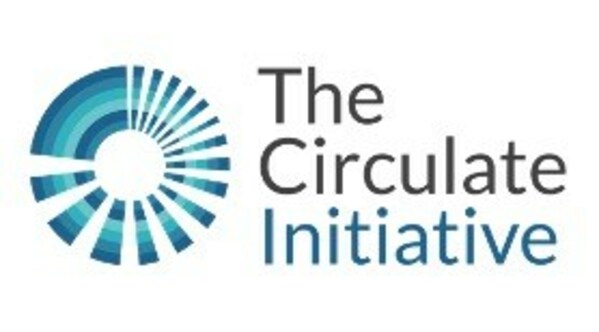 |
With program funding from Minderoo Foundation and The Coca-Cola Company, the initiative aims to improve the lives of over 50,000 informal waste workers by 2025[1]
SINGAPORE, June 22, 2023 /PRNewswire/ -- The Circulate Initiative, a non-profit organization dedicated to solving the ocean plastic pollution challenge in emerging markets, today announced the launch of its Responsible Sourcing Initiative to uplift informal waste workers and address the most pressing human rights issues in the plastic waste recycling supply chain. The launch follows the latest mandate to prepare the first draft of the legally binding instrument on plastic pollution by the end of November, where recognition of the roles and contributions of informal waste workers will be key to its success.
By convening and facilitating all value chain actors to adopt harmonized responsible sourcing practices, the initiative has set targets to improve livelihoods for an estimated 50,000 informal waste workers[1] and secure the commitment of over 25 global brands, investors, recyclers and aggregators by 2025.
Joining Minderoo Foundation and The Coca-Cola Company, the Responsible Sourcing Initiative is supported by Circulate Capital, First Mile and Tearfund as its initiative partners. On-ground activities will be supported by strategic implementation partners across the plastics waste value chain, including brands, investors, recycling and collection companies and informal waste worker associations.
Plastic waste management and recycling rely heavily on the informal sector, which is comprised of an estimated 15-20 million workers globally[2]. Informal waste workers are responsible for approximately 58% of collected and recycled plastic waste[3]. They often work in unsafe and hazardous environments and face increased vulnerability to poor health, injury and illnesses.
As companies gear up to deliver on their sustainability commitments in the face of increased scrutiny from regulatory bodies such as the European Union, there is growing momentum to create responsible supply chains for recycled plastic. Against a backdrop of increased urgency, the Responsible Sourcing Initiative offers a systemic approach to building inclusive and resilient recycled plastic supply chains across emerging markets. Key activities include:
- Aligning brands, investors, recyclers, aggregators and waste worker associations on an action-oriented framework that forms a shared understanding of responsible sourcing, success metrics and how progress will be tracked.
- Working with implementation and local partners across the full value chain to identify and invest in projects in India, Indonesia, Kenya and Vietnam, to improve human rights practices and increase the supply of responsibly sourced recycled plastics.
- Measuring impact and disseminating findings from local projects to replicate success in other markets.
- Conducting research with global and local partners to fill knowledge gaps and provide localized supply chain assessments.
"Our work continues to demonstrate the value informal waste workers bring to the world's pursuit of circularity. We need to transform their roles within the ecosystem to recognize the importance of their contribution, provide safer and more dignified working environments and improve their livelihoods," said Annerieke Douma, Director of Programs at The Circulate Initiative. "We call on corporations, recyclers and aggregators to join us on this journey to secure human rights for the informal sector and pave the way for an inclusive, circular economy."
Sonia Dias, Global Waste Specialist at Women in Informal Employment: Globalizing and Organizing (WIEGO), added, "All workers in the informal economy should have access to equal opportunities, rights and protections. The Circulate Initiative in its efforts to build an inclusive recycled plastic supply chain can help to ensure these workers have a seat at the table, their voices and needs are heard and that the entire ecosystem recognizes their contributions to tackling climate challenges like plastic pollution."
"Scaling the collection and recycling of plastic waste in the Global South is of critical importance in stopping leakage of plastic into the environment, ending plastic pollution and the harms it causes health, nature and economies. For this to happen, we need transformational change across the entire value chain, and we must ensure that this change is inclusive and no longer overlooks the wellbeing of informal waste and recovery workers," said Marcus Gover, Director of the Plastics Initiative at Minderoo Foundation. "Minderoo Foundation is proud to partner with The Circulate Initiative, whose experience working with local communities and brands to embed inclusive practices will prepare them to maximize the impact of their latest initiative."
"We recognize our responsibility to help solve complex plastic waste challenges facing our planet and society and this includes working to secure the rights of informal waste workers. The scale of the plastic waste recycling supply chain requires collaboration to achieve true impact and we look forward to working closely with The Circulate Initiative and fellow partners of the Responsible Sourcing Initiative to help empower informal waste workers and advocate for greater inclusivity," said Paul Lalli, Global VP, Human Rights, The Coca-Cola Company.
About The Circulate Initiative
The Circulate Initiative is a non-profit organization that works to solve the plastic pollution challenge and build circular and equitable economies across emerging markets. It delivers cutting-edge research, builds high-impact programs, and drives collective action with industry stakeholders including businesses, investors, and policymakers. For more information, please visit: https://www.thecirculateinitiative.org/
[1] The exact target will be scoped after an initial full value chain assessment in selected geographies.
[2] International Labour Office. (2013). Sustainable development, decent work and green jobs.
[3] Lau, W. W. Y., Shiran, Y., and others. (2020). Evaluating Scenarios toward Zero Plastic Pollution. Science, Vol 369, Issue 6510, pp. 1455-1461.









